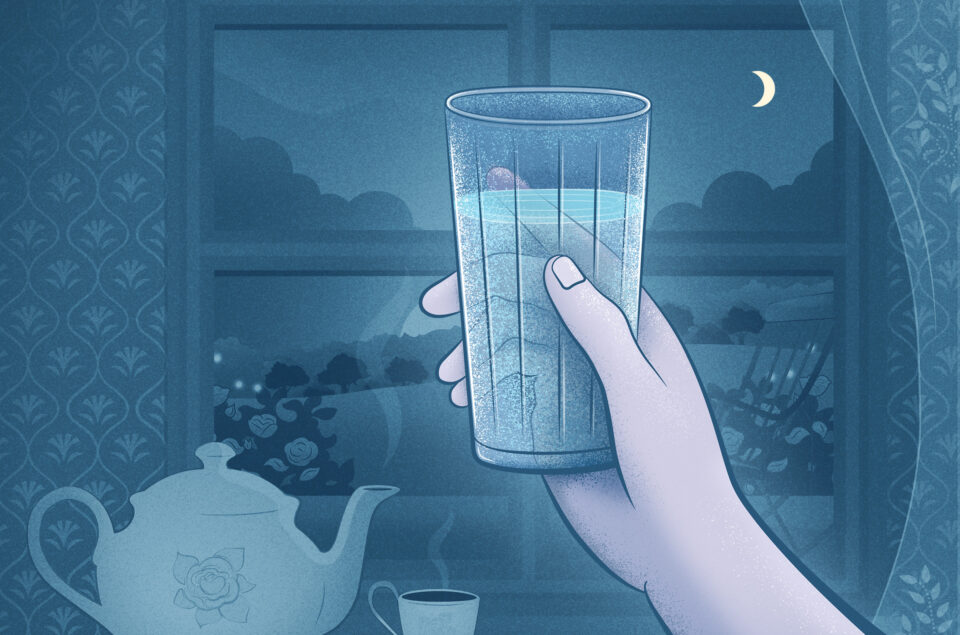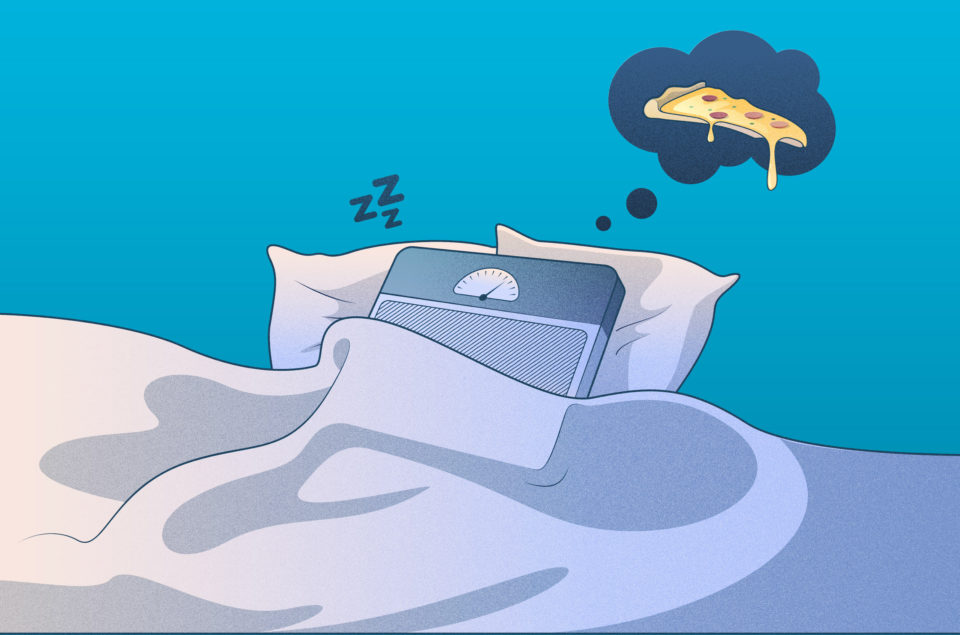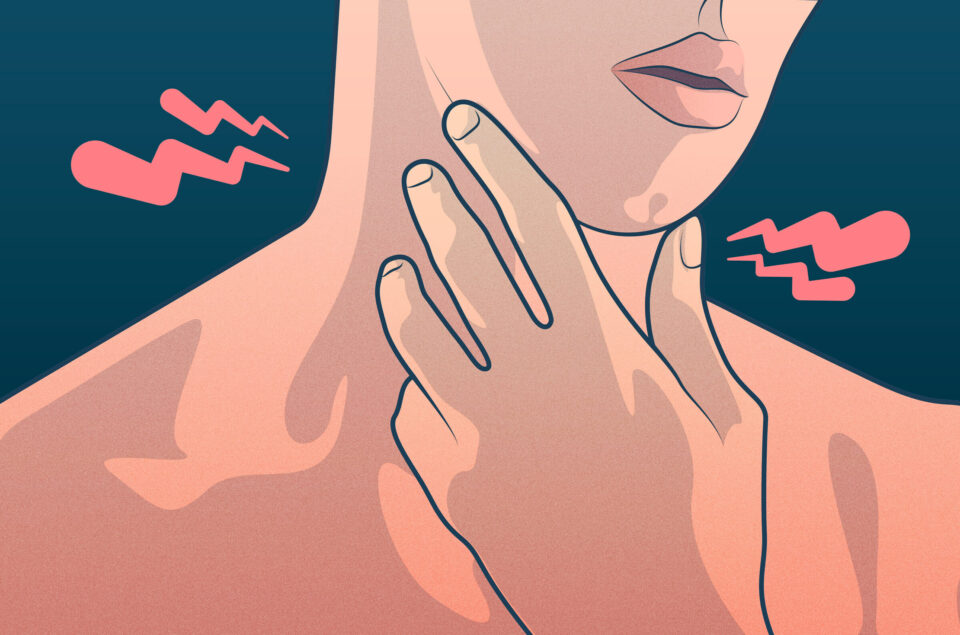When that time of the month comes around, women can find themselves tossing and turning in bed far more often than usual. Like sleep, menstrual cycles are natural bodily occurrences. How can this essential function disrupt sleep? Let’s dig in – we answer your top questions regarding the link between sleep and periods / PMS.
- Why am I so tired on my period?
- I have insomnia before my period. Is PMS the cause?
- What really causes insomnia during PMS?
- Why do I get night sweats during that time of the month?
- How can I sleep better during my period?
Why am I so tired on my period?
Women undergo physical and emotional changes before and during their period, some bothersome, some painful. Many women report that their menstrual cycle affects their sleep in some way, and it is most common for these sleep problems to occur in the 3-6 days leading up to the period (when menstrual bleeding begins). So if you’re not sleeping well, that may be one of the main reasons why you feel more tired before or during your period.
Moreover, research suggests that the circadian rhythm may also be disrupted and misaligned during your period due to hormonal changes (more on this below). And if you work in shifts, your unstable circadian rhythm could also lead to a more irregular menstrual cycle.
Medical issues such as low iron levels (anemia) or extreme PMS (what’s called Premenstrual Dysphoric Disorder) can also be the cause of tiredness and fatigue during your period. However, it’s important to speak to your healthcare provider if you suspect that you may experience these or other conditions.
I have insomnia before my period. Is PMS the cause?
Sleep-related symptoms that occur around your period may be linked to Premenstrual Syndrome (PMS), the combination of symptoms that occur a week or two before a period begins. PMS doesn’t necessarily occur during every menstrual cycle, but three in four women report experiencing PMS symptoms at some point in their life.
Women who have PMS are twice as likely to experience insomnia or poor, fragmented sleep before and during their period. The more severe the premenstrual symptoms, the more likely it is that sleep is disrupted and sleep quality will decline. 70% of women diagnosed with Premenstrual dysphoric disorder (PMDD), a more severe form of PMS, have insomnia.
Some studies suggest that PMS could cause more fragmented sleep or even alterations in the sleep cycle – some women may spend less time in the REM phase in the days prior to their period. However, more research is needed as this alternation has also been seen in women without PMS.
What really causes insomnia during PMS?
Every woman is unique, experiencing different physical and emotional symptoms before and during their period. Researchers are still uncovering what happens during the period that can lead to sleep disruptions and fatigue, but studies suggest that period-related sleep issues are most likely triggered by the causes below:
- Changing hormone levels: This is the most common, and the most significant cause of disturbed sleep before and during PMS. Hormones rise and fall throughout your menstrual cycle. Estrogen builds up during ovulation, and progesterone levels rise after ovulation. Before the start of the period, levels of both estrogen and progesterone drop. Researchers believe that this is when many women have trouble sleeping. It is also theorized that the faster the withdrawal or the larger the decrease of the hormones, the more likely a woman is to experience insomnia.
- Increased body temperature: Low estrogen levels around your period can lead to hot flashes and night sweats, which can disturb your sleep. Progesterone can also increase body temperature during menstrual cycles, which has a negative impact on sleep.
- Mood changes: PMS may lead to feelings of anxiety and depression, which are strongly linked to sleep issues. Emotional mood swings can lead to conflicts and tension with friends and family, further exacerbating nighttime anxiety and affecting sleep.
- Pain: Headaches and cramps are common symptoms related to periods. Severe pain can keep women from getting good sleep during their cycle.
- Significant menstrual bleeding: Once periods begin, the disturbed sleep can continue. Women who have a heavy flow may have to get up multiple times throughout the night to change pads or tampons, making it harder for them to fall asleep.
Why do I get night sweats during my period?
Night sweats before or during your period are harmless and treatable. As said, they occur due to regular hormonal changes – progesterone levels increase, estrogen levels decrease – affecting the hypothalamus, a gland in your brain responsible for regulating the body temperature.
If you experience heavy night sweats or even hot flashes but haven’t reached menopause yet, you may be approaching perimenopause. The symptoms usually start after the age of 40 and night sweats are often the first symptoms to appear. However, whether or not you’re on your period or approaching menopause, night sweats could also be a symptom of:
- Anxiety or stress
- Drinking alcohol or eating some foods late at night
- Sleep apnea
- Working out close to bedtime
- Infections
- Medication
- Overly warm bedroom or PJ’s
- Gastrointestinal issues
How can I sleep better during my period?
Although it might seem a challenge to fight hormonal changes, mood swings and cramps in order to get a good night’s sleep, you could actually find relief with the following tips:
- Exercise: exercising has been proven to alleviate many PMS, menstrual symptoms such as cramps, bloating, and fatigue. Moving your body can increase the production of endorphins (the “feel good” hormones) and reduce those mood swings. Moreover, it promotes better sleep – something necessary when you’re sleep-deprived.
- Maintain good sleep habits: keeping a consistent sleep schedule, reducing screen time before bed or establishing a nighttime routine can help you get a better night’s rest during that period of the month.
- Keep an eye on what you eat before bedtime and avoid caffeine: if you experience PMS or are prone to anxiety and stress around your period, it’s better to limit your intake of caffeine or totally avoid it. Also, try to minimize the number of processed foods, candy (sorry cravings!) or spicy foods as they can worsen the symptoms and your sleep if you consume them close to bedtime.
- Track your sleep: tracking your sleep with the Sleep Cycle app can give you insights into how your PMS and period affect your sleep quality or rest in general. After a month or two, you may be able to see when your sleep gets worse so you can prepare yourself.
- Meditate: meditation can help you reduce stress, and mood swings, and even distract you from the cramps. You can try the guided sleep meditation available in the Sleep Cycle app or try some of the top meditation techniques.
- Keep your bedroom at an optimal temperature: for those suffering from night sweats or feeling warmer than usual during their period, it’s especially important to keep the bedroom cool around 18°C (68 F).
What is the best position to sleep in during your period?
The position considered to be the best to relieve period cramps is the fetal position. This position takes the pressure off the abdominal muscles: muscles around your abdomen relax, and less tension leads to fewer cramps and less pain. On the contrary, the position that is less recommended during your period is lying on the stomach – as it gives too much pressure on the abdomen and potentially could cause more cramps.
Ultimately, the best position to sleep in on your period is the one where you feel more comfortable and the one that eases your pain. Listen to your body, try different positions and stay in the one that makes you feel better.
Understand how your period affects your sleep
Talk to a doctor if you experience ongoing disrupted sleep that impacts your daily activities. As you gain a deeper understanding of the profound changes your body is going through every month, you can arm yourself with the necessary steps that work for you to improve your sleep. With the use of ‘Sleep Notes’ in the Sleep Cycle app you can track the effects of your menstrual cycle on your sleep quality, and find ways to ensure good sleep throughout your cycle.










